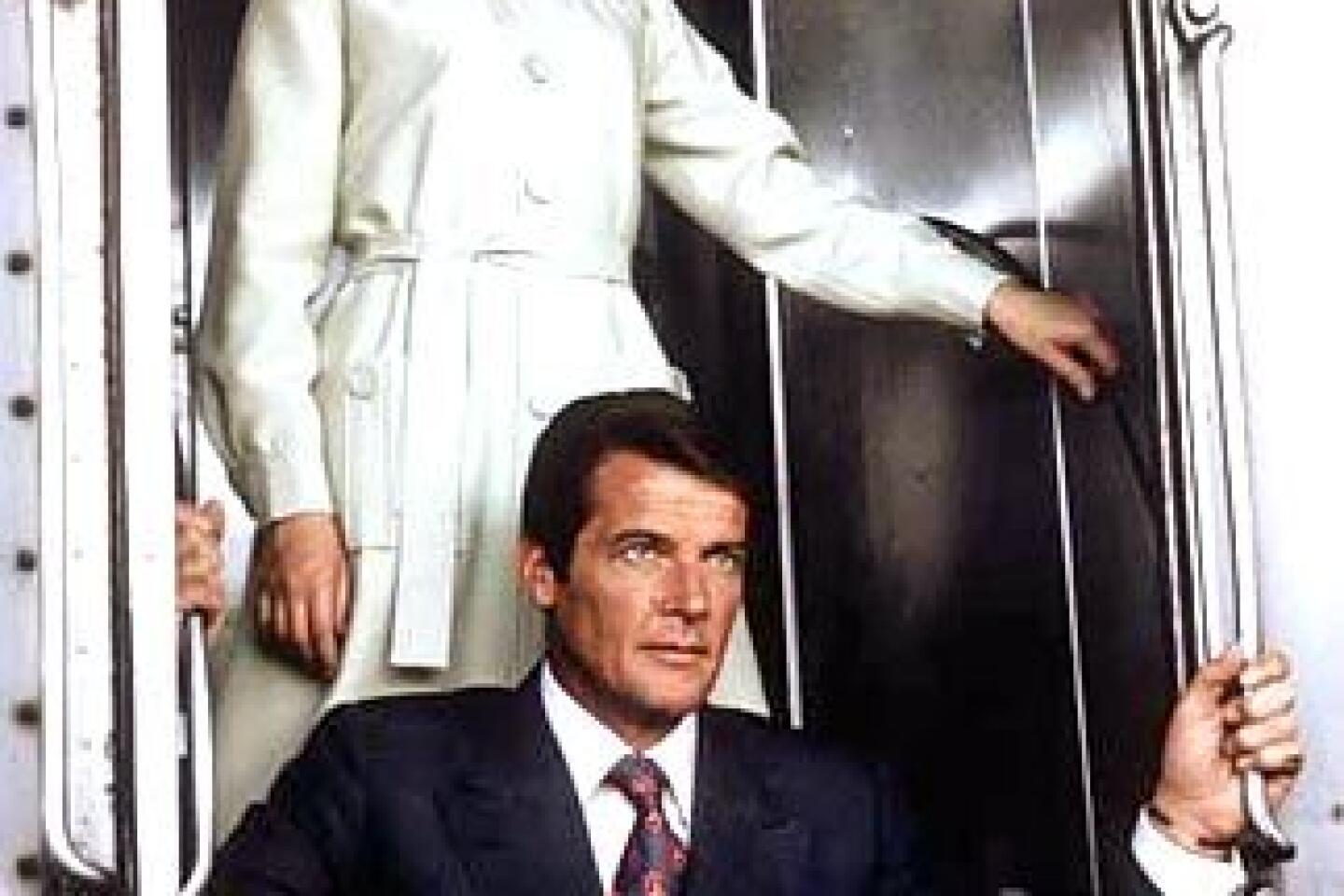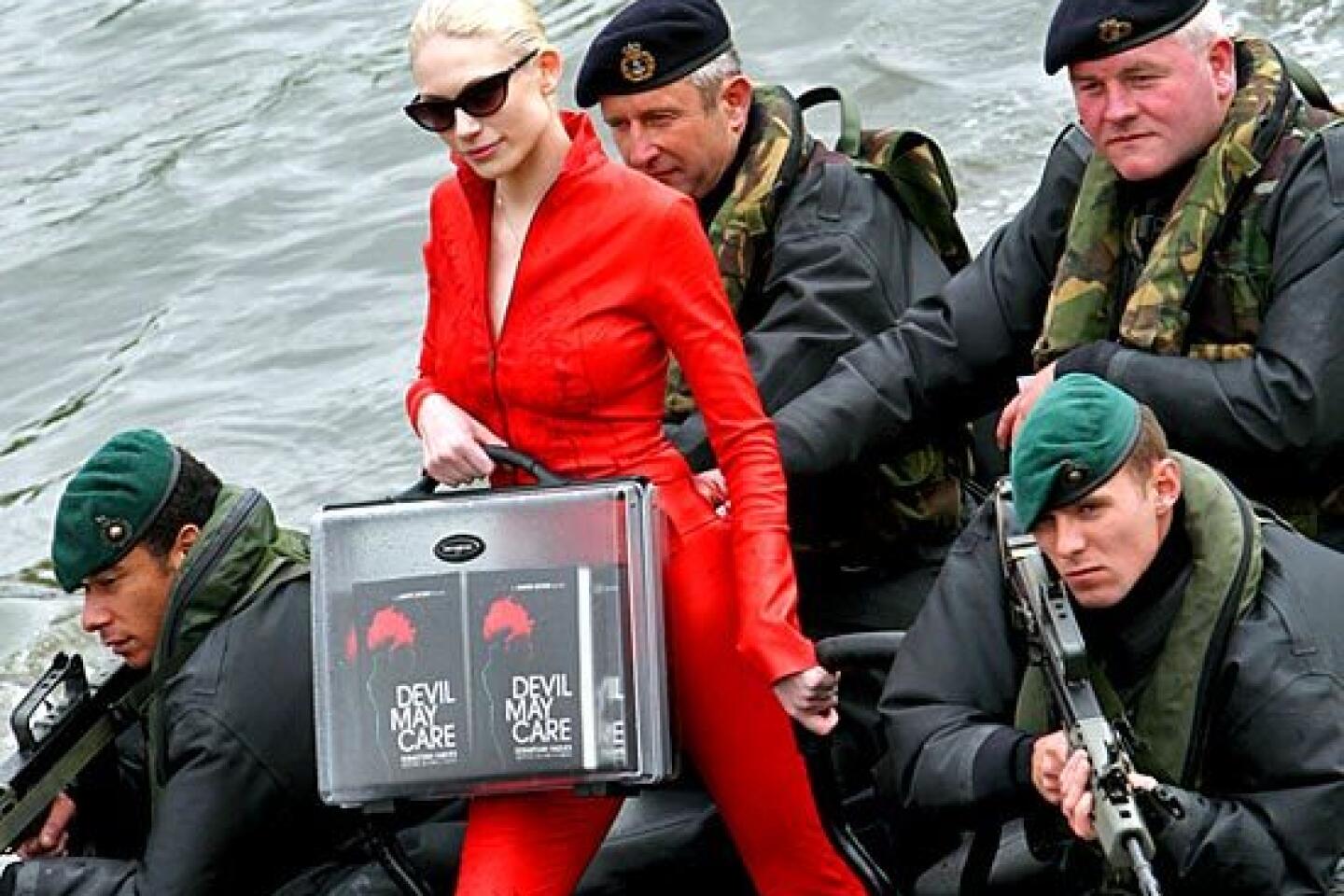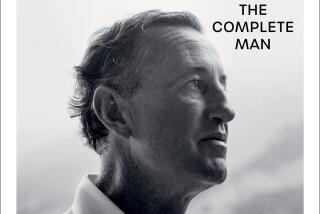After all the kissing and killing, is James Bond about to call it a day following ‘Spectre’?
Is James Bond as we know him saying goodbye?
Like a 007 quest itself, it depends on who you talk to, what you hear, how you interpret the clues.
The question might seem strange, what with “Spectre” poised to sweep into U.S. theaters Thursday, blowing up a moribund box office like a white Lotus Esprit. The new Bond installment — director Sam Mendes’ second, star Daniel Craig’s fourth, Bond steward Eon Productions’ 24th — finds its hero as virile as ever and even restores many classic touches. Bond is chased through snowy mountains. Q supplies new gadgets. A supervillain, Ernst Blofeld, shows up, doing supervillainy things he hasn’t done in nearly 35 years.
SIGN UP for the free Indie Focus movies newsletter >>
Yet the subject of conclusions has been mulled and debated, elided and included, by those behind, and in, the new film. Goodbyes go right to the movie’s thematic heart. “Spectre” calls up a culmination; subtle farewells are on its mind.
Just ask the people who created it. They say the movie contains a bid-adieu, of a sort. Seemingly. Maybe.
“You can feel this, in one way, as an end to a quadrology,” said Neal Purvis, who with screenwriting partner Robert Wade has cowritten all four of the Craig movies.
“The last one was about middle age and mortality. And this is about legacy,” Mendes said. “What happens when you’re a secret agent and no one knows you’ve ever lived?”
“It seems to me there’s room for more. We left the door open for plenty of Daniel Craig Bonds,” says “Spectre” producer and Eon Productions principal Michael G. Wilson, sounding as much as he’s trying to convince us as he is convinced himself.
There will always be more Bond movies; like underground bunkers and “Seinfeld” reruns, nothing can destroy them. But this Bond, both physically and spiritually, may be offering a final hand wave. (Note: Though steps were taken to avoid juicier reveals, the below story contains some plot spoilers.)
For fans who loved Craig’s “Casino Royale” debut and had to twiddle thumbs for six years until 2012’s “Skyfall” (oh, yes, “Quantum of Solace” came in-between), the wait is mercifully short for “Spectre.” As the film opens, Bond is still connected to the adventures of the previous film, mourning the climactic death of Judi Dench’s M and repressing his grief with new missions, including a posthumous quest she assigned him.
In chasing down the evil as she instructs, Bond finds himself facing a troubled former assassin, which leads him to the man’s daughter, Madeleine Swann (Lea Seydoux), who is far more 007’s equal, in murder and romance, than many a Bond lady. Their dynamic is forged in the search for a slippery man with a childhood Bond connection, Franz Oberhauser (Christoph Waltz), who may or may not be the supervillain Blofeld.
Both these characters, it turns out, provide a sense of completion, sending out a hand-smacking, job-done-here signal.
Oberhauser/possible Blofeld turns out to be--as the trailer, in an unexpectedly librarian-friendly metaphor, makes clear--”The author of all your pain.” He is the one responsible for all the scariness in the previous three films, including Javier Bardem’s hair. The plots from all those movies are due to him, so vanquishing him means an arrival at the end of the road.
“Spectre” also contains a deep sense of romance. 007 has met his counterpart in Madeleine. He has the full, contented heart that, in every movie since the dawn of ages, means a journey has wound down.
The sense that time is up permeates the new film in other ways. A critical scene features a timer’s countdown to zero. A key gadget, and escape, involve a wrist watch.
Even the dialogue manifests the ticking-clock theme.
“It’s not over yet,” 007 says.
“Goodbye, James Bond,” says a villain.

Watch the final trailer for “Spectre.”
The question of farewell is very much tied up with the future of Craig and Mendes, both of whom have indicated in the past that they may not be willing to die another day.
That would normally be a challenge for lawyers, for agents, or for therapists. But their departures would almost certainly spell a new Bond creative direction; this is the place where contractual negotiations and character trajectories intersect. (Incidentally, this is also a spot occupied by Blofeld and the titular organization “Spectre,” both freed to be used in the Bond franchise after decades in legal purgatory.)
Craig, who was not made available for a pre-release interview, has strongly suggested he is done, uttering the famous “Now? I’d rather break this glass and slash my wrists” line that zoomed across the Web faster than an Aston Martin.
The actor is clearly tired. So too is the man he plays. In “Spectre,” Bond meets a onetime hit man, broken and bowed, and realizes this is the person he could become. Bond needs to rest. There is only so much kissing and killing a man can do.
James Bond has shown a remarkable durability. He has survived Cold Wars and turf wars, terrorism and legal battles. When Sept. 11 seemed to make moot a good-times globetrotter with no earthly concerns, the franchise — notably Wilson and Eon partner Barbara Broccoli — deftly maneuvered so he could better fit with the times. The hero became a tortured antihero, a man who, amid the martinis and madames, still furrowed his brow over the state of the world.
But that doesn’t mean a goodbye can’t happen. It happened before, in the transition from Pierce Brosnan to Craig. It could happen after Craig. The Bond franchise’s uber-theme is that time moves on.
Filmmakers, perhaps, feeling the wind-down, left nothing on the table with “Spectre.” The production hopped to five countries on three continents. The budget is bigger than it’s ever been — likely at least $250 million, possibly well above it.
And fittingly, for a tale about endings, there was a lot of drama about which one this should have.
As hacked Sony emails revealed, producers, writers and executives from the studio and MGM all had heated debates about what to do with the film’s third act. How much is Madeleine the culmination of Bond’s journey, and how much is she just another way station on its road? In one version, she disappeared early only to reappear at the end; in another, she tricked him and became at least a temporary adversary.
But the more romantic path they chose gives the movie an elegiac quality.
“It’s a happy ending, which is rare in Bond movies,” said Seydoux. “It closes a chapter, in a way.”
Ditto on the villainy front. Who is the real bad guy, and what is his motive? Who is he, in the most fundamental sense? Few could agree, as executives and filmmakers went back and forth in email, right into pre-preproduction. At one point it was suggested that Blofeld become a woman. The suggestion was shot down — unless, one principal said, it was Meryl Streep. Then he became male, and the author of everything.
As the scribe of all that pain, Blofeld then, is the main antagonist of the Craig period, and as — or if — he goes, so goes the era.
So is he done?
“Pretty much. I think so,” Waltz said. “What you said about culmination and rounding off feels particularly true in my case.”
Said Wilson, the producer: “We’re not done with Blofeld.”
Something for them to work out, perhaps.
Even the franchise’s Hollywood venue may be shutting down — MGM and Eon’s deal with studio Sony is over after this film, and many negotiations are expected. Bond could have a fresh home. Will that home have a fresh Bond?
The character, after all, has always been about the new — the new love interest, the new mission, the new villain, the new full glass. Bond here conveys a getting-old feeling — the man, but also the whole foreign-assassination thing.
“It’s called life. You should try it sometime,” Moneypenny tells the hero by phone when he’s off on a globe-trotting adventure. He hears that as he prepares to eject from an Aston Martin and realizes he’s missing out on her, on all the world offers. To be a happier James Bond, he might need to say goodbye to 007.
More to Read
Only good movies
Get the Indie Focus newsletter, Mark Olsen's weekly guide to the world of cinema.
You may occasionally receive promotional content from the Los Angeles Times.













